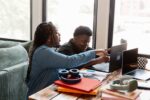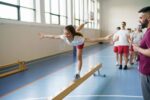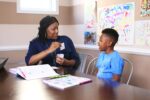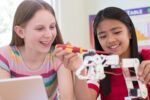In an ever-growing technology and data driven world, much of the focus in education has understandably taken a shift toward STEM-based (science, technology, engineering, and math) initiatives that will prepare students for the coursework and careers of the future. But life skills—how well equipped students are to make good decisions and solve problems in their academic and professional careers as well as their personal lives—should also play a critical role in a well-rounded and comprehensive education.
What Is Life Skills-Based Education?
Think of life skills as the building blocks or framework that allow students to apply the knowledge they acquire in school to real world problems and situations. Also referred to as “soft skills” in a professional context, the ability to think abstractly and approach problems from multiple angles to find practical solutions, and the skill to communicate clearly and effectively are just as important as technical knowledge in a particular field or academic subject.
According to Macmillan Education, “In a constantly changing environment, having life skills is an essential part of being able to meet the challenges of everyday life. The dramatic changes in global economies over the past five years have been matched with the transformation in technology and these are all impacting on education, the workplace, and our home life.”
But life skills go well beyond choosing a major in college or impressing a potential employer in the future. Life skills provide children with important tools for development, such as independent thinking, how to socialize and make new friends, and how to take action in situations where their parents or teachers may not be around to help or intervene (dealing with a bully or personal insecurities and fears, for example.) Unlike motor skills and basic intelligence, executive function and decision-making skills are not innate but learned.
Examples of life skills include:
- Self reflection
- Critical thinking
- Problem solving
- Interpersonal skills
The Benefits of Teaching Life Skills at a Young Age
Building life skills is essentially an exercise in helping children develop sound judgment and good habits for long-term stability, wellness, and success.
How to Promote Life Skills for Young Students
Parents can take an active role in teaching life-skills at home with projects that provide real world examples and lessons in decision making and problem solving. They can be as simple as assigning household chores and budgeting exercises through an allowance, to caring for a pet or volunteering in the community.
Fun and simple-to-organize activities, like game nights (or afternoons) with family and friends with an educational focus that also encourage working in teams, can help to build social and interpersonal skills.
Everyday Survival Skills
In addition to brushing their own teeth and learning how to tie their shoes and get dressed, young children should know what to do in common situations as well as emergencies, such as:
- How to get to and from home and school
- Who to call in an emergency (memorize phone numbers)
- How to safely cross the street
- What to do if they are bullied or witness bullying
- How to safely use kitchen appliances and prepare basic meals
- How to do the laundry
The Importance of Books and Reading
The benefits of reading to young children and fostering a reading habit early in a child’s life are hard to overstate. From building and strengthening vocabulary and language skills to aiding with creative thinking, reading is one of the easiest and best activities available to teach children a range of new skills. Some of the many benefits of reading include:
- Builds self-regulation (also known as executive function)
- Teaches empathy
- Improves concentration
- Exposes children to diversity and differing perspectives and situations than their own
The acquisition of problem-solving and reasoning abilities is a fluid and ongoing process, and working with children early in their development to lay the framework with examples that they can understand and apply on their own is a good place to start.
If you would like your child’s education to include more life skills, consider enrolling them in a public school at home via online learning. As your child’s Learning Coach you can ensure a well-rounded education that you can supplement with plenty of real world skills!






















































































































